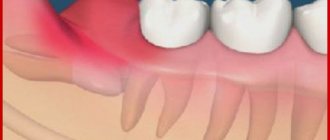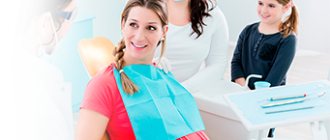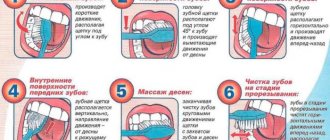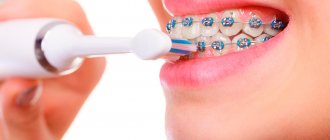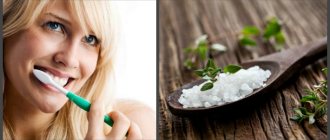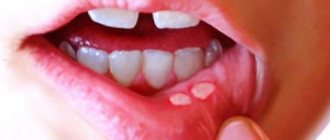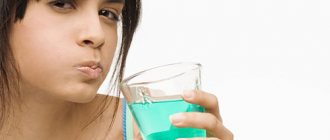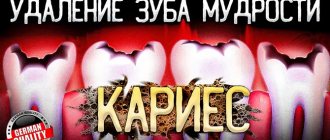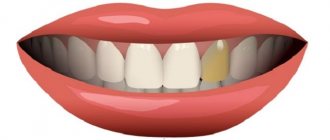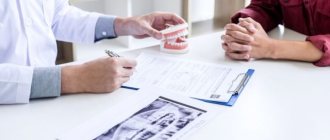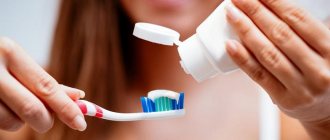Donating blood for analysis is a common procedure , even in some ways natural.
Whatever doctor we visit, be it a simple physical examination or a specific examination for any disease, a blood test is necessary.
But few people think that before collecting material they need to adhere to certain rules of “behavior”.
And in addition to restrictions on foods and drinks, when submitting the study material, in some cases it is not even recommended to brush your teeth .
What is the connection between such an “innocent” hygienic procedure and the reliability of the results of a blood test, and whether it is possible to brush your teeth before donating blood should be understood.
The procedure for donating blood for analysis
Note! Not a single examination, surgery, x-ray, appointment or even physical procedure is complete without a blood test.
This simple procedure allows a specialist to quickly assess the patient’s condition and identify possible deviations, even without general clinical signs of the disease.
Analysis of the material
can be venous or capillary , depending on the purpose of the study (sugar content, the amount of certain hormones, the presence of infections, pathologies and inflammatory processes, etc.).
Taking biochemistry
Biochemical analysis is a kind of “mirror” of the body . The slightest changes in his condition are reflected in the biochemical analysis.
Keep in mind! You should prepare for such an analysis by eliminating all possible causes of false indicators.
In addition to the ban on coffee, sugary drinks, smoking and alcohol , experts recommend not brushing your teeth using toothpaste before the analysis .
Especially when it comes to the study of glucose, urea and sugar.
It is necessary to take into account the quality of reagents that react to any external factors:
- toothpaste contains triclosan and other synthetic substances that have antibacterial properties, which, in turn, can affect the accuracy of the readings;
- saccharin contained in toothpaste directly affects blood glucose levels;
- foaming pastes with the addition of sodium lauryl sulfate affect changes in the protein composition of cells (nitrate compounds can accumulate in the circulatory system).
When prescribing a referral for this test, the doctor does not recommend morning brushing of teeth using toothpaste.
Testing for hormones
You should know! A comprehensive examination of hormones (reproductive, thyroid and pituitary gland) is prescribed to identify serious changes in the body.
Blood material is examined venously, taken on an empty stomach only in the morning (from 8 to 11 am).
It is prohibited to take medications that can change hormonal levels, as well as alcohol, visiting a sauna, any stress (including physical), as well as emotional outbursts.
Peace, rest and a positive attitude are recommended.
The determining factors for the accuracy of the results are time, gender and age of the patient.
This is in no way related to brushing your teeth; in this case, there are no restrictions on the use of toothpaste.
Urine tests:
General urine analysis
- On the eve of the test, it is recommended not to eat vegetables and fruits that can change the color of urine (beets, carrots, etc.), and not to take diuretics.
- Before collecting urine, it is necessary to perform a thorough hygienic toilet of the genitals.
- Women are not recommended to take a urine test during menstruation.
Collect your morning urine in a container. To properly conduct the study, during the first morning urination, release a small amount of urine (the first 1 - 2 seconds) into the toilet, and then, without interrupting urination, place a urine collection container into which to collect approximately 50-100 ml of urine. Close the container tightly with the screw cap.
A specialized plastic container is the optimal means of collecting and transporting urine for laboratory research. Ask at pharmacies. The container is a wide-neck graduated translucent glass with a capacity of 125 ml with a hermetically screw-on lid. The container is sterile, does not require pre-treatment and is completely ready for use.
Nechiporenko test
To analyze urine using the Nechiporenko method, the morning portion is collected in the middle of urination (“middle portion”). 15-25 ml is enough.
24-hour urine collection
For laboratory studies, in the morning before collecting urine, it is necessary to toilet the external genitalia.
The first morning urine sample is not collected, but the time of urination is noted. Subsequently, all urine excreted in 24 hours from the marked time of the first urination to the same hour the next day is collected.
The collection of daily urine is optimally carried out in a specialized graduated plastic container of 2.7 liters, which has a wide neck and a textured handle. The container is safe and easy to handle.
You should urinate directly into the container and screw the lid tightly after each urination. Urine should be stored in a closed container in the refrigerator on the bottom shelf, avoiding freezing.
At the end of the collection (the last urination is performed at the same time, which is marked as the time of the first urination, but one day later), the urine can be submitted to the laboratory: the daily volume of urine in a closed container is shaken, after which it is poured into a small container for clinical urine analysis of 125 ml 100 ml portion. You don't need to bring all your urine. At the medical center, report the daily amount of urine.
Collection of daily urine according to Zimnitsky
Urine is collected per day (8 servings in 8 containers, every 3 hours). The first portion of urine in the morning is removed. All subsequent portions of urine excreted during the day, night and the morning portion of the next day are collected in different containers (50 ml) purchased at the pharmacy, each with the time of collection signed.
After collecting urine, accurately measure the contents of the container, be sure to mix it and immediately pour it into a container purchased at the pharmacy. Bring the container to the medical center for examination. You don't need to bring all your urine. At the medical center, report the daily amount of urine.
Urine for sugar
From the daily amount of urine, 50-100 ml of urine or 3 portions of urine collected per day with intervals of 8 hours are delivered to the laboratory:
1 serving - from 8 to 16 hours
2 servings - from 16 to 24 hours
3 servings - from 24 to 8 am (as directed by a doctor).
Urine for PCR studies (tuberculosis, CMV, STIs)
Before collecting urine, it is necessary to toilet the external genitalia. Urine is collected in the morning on an empty stomach after sleep or no earlier than 2-3 hours after the last urination into a sterile plastic container. The minimum volume of urine required for analysis is 20 ml.
Urine for bacteriological research
The urine sample is collected only in a sterile container.
Urine must be collected before starting antibacterial treatment or 3 days after therapy. If the patient is taking antibacterial drugs, then it is necessary to decide on their temporary withdrawal.
After thoroughly toileting the external genitalia, flush the first portion of urine into the toilet, collect the middle portion of 3-5 ml in a sterile hermetically sealed container. Deliver the urine to the laboratory within 1-2 hours; if this is not possible, then the urine sample can be stored in the refrigerator for no more than a day. When transporting the sample, care must be taken to ensure that the stopper does not get wet.
For sugar
It is worth noting! In this case, along with serious restrictions on food and drinks (you can’t even drink sweet tea or water 8 hours before taking the material), there is also a ban on toothpaste.
What is the reason for this limitation?
The fact is that any, even the most natural toothpaste contains sugar .
It is absorbed through the mucous membrane into the blood and naturally affects sugar levels in the circulatory system.
To avoid distortions in the results of a blood sugar test, and therefore not to donate the material again, you should avoid brushing your teeth using toothpaste immediately before the procedure.
Before what tests, except for a blood test, should you not brush your teeth?
- Sputum analysis
- It is recommended to take it on an empty stomach, after rinsing the mouth with boiled water. You cannot brush your teeth with a brush, as you can damage the gums, after which blood can get into the biomaterial, and this leads to inaccurate results.
- Analysis of a throat smear to detect various infections
- Many toothpastes have antiseptic properties. After brushing your teeth, bacteria may be temporarily removed, so it is likely that the test will show nothing while the body is infected.
- Feces for occult blood
- when brushing your teeth, you can injure your gums, after which blood will enter the gastrointestinal tract. Moreover, even a small amount of it leads to distortion of the results...
Blood test for donation
Stay up to date! In any donor center, after registration, a step-by-step examination of the blood of a potential donor is carried out:
- in the laboratory, material is taken from a finger to determine the blood type, Rh factor and the amount of hemoglobin;
- a transfusiologist, as a result of an examination, based on capillary examination, gives permission for donation;
- All donated blood is examined for the presence of HIV infection, and is also tested for all types of hepatitis and syphilis.
Before the donation , it is mandatory to drink sweet tea with cookies or other baked goods to ensure the donor’s normal well-being.
Therefore, the issue of prohibiting brushing teeth is not discussed; the hygiene procedure is not an obstacle to this manipulation.
Rules for collecting stool
Before submitting the material (3-4 days before), you must stop taking medications (laxatives, castor and petroleum jelly, rectal suppositories). Stool obtained after an enema or barium intake (during X-ray examination) is not allowed for examination.
Before collecting the test, urinate in the toilet. Next, by natural defecation, collect the stool in a bedpan (previously washed and dried). Feces are collected in a clean, disposable container, no more than 1/3 of its volume.
The material must be delivered to the laboratory within 3 hours from the moment the analysis is collected. During this period, it is advisable to store the analysis in the cold (+2...+8C), avoiding freezing.
Before gastroscopy
First of all, you should understand what gastroscopy is and for what purpose this examination is prescribed.
Need to know! Gastroscopy is an examination of the stomach with a special flexible probe (gastroscope).
A special light bulb is attached to one side of such a device, and a camera is attached to the other, with the help of which the state of the stomach is recorded on the screen.
The probe is inserted through the mouth, passes the esophagus and enters the stomach, examining it
for fibrous formations, ulcers and polyps.
Gastroscopy also allows you to take a sample of stomach tissue for a biopsy.
How to properly prepare for such an examination?
First of all, the stomach must be empty, and the patient must not eat anything (6-8 hours) or drink anything (2 hours) before the procedure.
Remember! Blood must first be donated to identify various side diseases, as well as to prevent unwanted complications:
- a general (clinical) analysis is prescribed to identify pathologies and inflammatory processes in the body;
- determination of blood type and Rh factor is necessary to prevent unwanted reactions and complications;
- a coagulation test is prescribed to identify various disorders in the hemostatic system, since minor bleeding is possible when a gastroscope is inserted;
- the presence of hepatitis B and C antibodies, HIV infection is a risk area for infection of the doctor and staff.
These tests have nothing to do with brushing your teeth, and the use of toothpaste will not in any way affect the reliability of the results (the number of white blood cells, hemoglobin and platelets, red blood cell speed, etc.).
Keep in mind! If the patient is prescribed a biochemical blood test, then you should refrain from brushing your teeth using toothpaste immediately before taking the test (see biochemical blood test).
General rules for preparing for hair analysis
Scalp hair is the most preferred biomaterial for research. Hair from other areas of the body should only be used if there is no hair on the head.
- Stop using hair treatments 2 weeks before submitting your hair for analysis. Dyed, bleached, permed hair is not suitable for research. You must wait until enough hair has grown back to collect a hair sample.
- Hair should be clean and dry (it is advisable to wash your hair no later than 24 hours before collecting hair). Before the study, it is not allowed to apply any cosmetic or medicinal products (creams, oils, gels, etc.) to the hair.
- Avoid professional contact of hair with external contaminants (welding, mining) between shampooing and hair collection.
- Before collecting hair, thoroughly wash and dry your hands and scissors.
Oral hygiene rules without using toothpaste
People are accustomed to brushing their teeth from an early age, and recently both advertising and newfangled medical TV shows, forums and blogs have been aimed at improving this process.
New electric multifunctional brushes for children and adults are being invented, toothpastes with incredible composition and effect are being advertised.
But one point is missed here - brushing your teeth at night is important.
It is the “overnight” leftover food that harms dental health; the morning procedure is more likely to eliminate psychological discomfort (odor, plaque, etc.).
Therefore, by brushing your teeth thoroughly before going to bed, in the morning (if required by the doctor before donating blood), you can do without toothpaste.
You should know! What can replace morning brushing of teeth:
- In the evening, on the eve of the morning blood test, you should thoroughly brush not only your teeth, but also your tongue, gums and the inside of your cheeks. It is in these places that a huge number of microbes accumulate.
- In the morning , you need to brush your teeth and tongue without toothpaste to remove plaque and freshen your mouth.
- Be sure to rinse your mouth with water or a special solution (10 - 12 drops of hydrogen peroxide per 250 grams of warm water). Rinsing will remove bad breath and neutralize bacteria that appeared at night.
It is prohibited before taking blood tests .
This is explained by the fact that, in addition to sugar, they contain many harmful synthetic compounds, dyes and flavors that can affect the results of the analysis.
